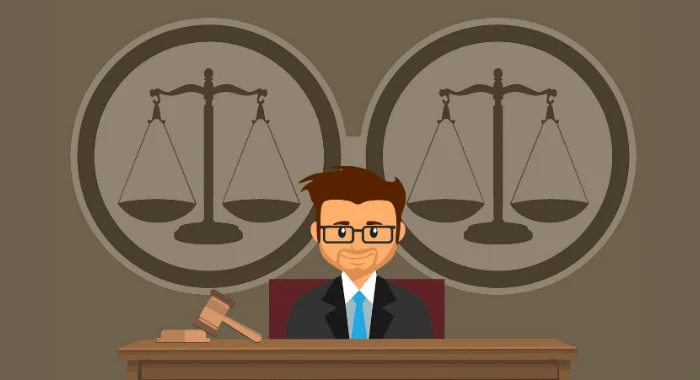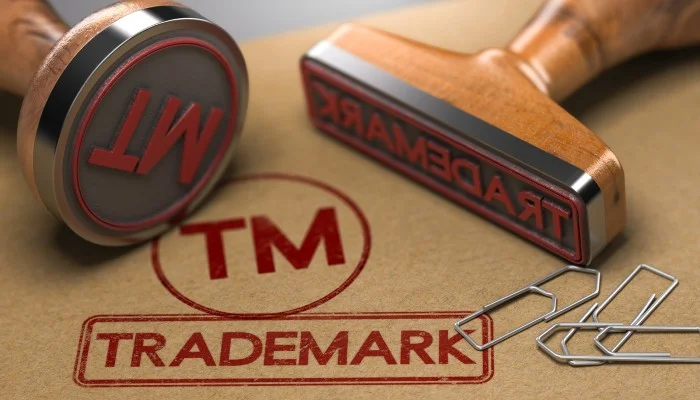Starting a business can be fun. As long as you know that you’ve taken care of all possible issues, it can be thrilling—and safe. How crucial is having a business solicitor to this peace of mind?
Having one can help you navigate some murky waters, saving you time, effort, and misery in the future. But is a solicitor strictly necessary for every business registration?
Let’s take a look at the range of activities where a solicitor is useful.
You Can Register A Business Without A Solicitor
Generally speaking, you don’t need a solicitor to start a business. There is no legal requirement for you to have a solicitor’s advice or support when you set up your business.
If you choose the simplest business format, namely sole trader, the setup is simple and your accounting duties basic and manageable by the business owner. Sole traders have to register for Self-Assessment and file their tax returns at the end of each financial year.
Many people start their business as sole traders to test the waters and then upgrade the arrangement when profits and business opportunities expand.
Similarly, a limited company with a single shareholder can easily set up the business online without the need for a solicitor.
There are various company formation agents who will set up your limited company within a few days, if not hours. These companies can set up your registered office, details of shareholders, and even your business name.
Choosing A Company Formation Agent
However, even after setting up your business, you might still need the help of a solicitor!
… But Legal Advice Is Useful And Sometimes Crucial

Setting up a business
If you choose a limited company with several shareholders, then the use of a solicitor is advised for all the paperwork to be in order and to protect all the involved parties’ interests.
Limited companies have to register with Companies House. Specifically, they need to supply a shareholders’ agreement and file it with Companies House.
Which Company Formation Package Is Right For You?
Answer 5 multiple choice questions to get a personal recommendation:
A solicitor can prepare all the filing, making sure that shareholders have clear obligations and rights. A solicitor will ask the difficult questions that you might not have thought of.
What happens if one shareholder wants to sell their shares? What if some shareholders have a disagreement? What are the purposes and goals of the company?
These issues may not be particularly encouraging or cheerful, but they need to be explicitly asked and written down.
Shareholders’ agreements
A solicitor will also make sure that the shareholders’ agreement applies to your particular business. It will be a document set up for you and your partners, according to your business model and your business expectations.
Remember that something you have dismissed now can catch up with you in later years and cause you agony and loss of revenue. A solicitor will make sure this does not happen.
A solicitor can also set up the right contracts for your customers, clients and suppliers and your interaction with them. These contracts will define the terms of payment, your obligations, and any other pertinent details when it comes to doing business.
For example, if you have the right contract, you can ask your clients to pay you within a certain amount of time. This can be very helpful with your cash flow. Similarly, a contract will guide your collaboration with your suppliers and will make doing business a smooth process.
Don’t forget that the right business contract will be the basis for any disagreement with clients or customers.
Helping with licences

Some professions require a licence before you can trade or do business. Restaurants and bars require alcohol licences. Childcare, dog breeding or imports and exports also require relevant licences.
A solicitor will make sure you have the appropriate licence before registering your business.
Take a look at the official Licence Finder to get a picture of the necessary licences, according to your line your work and the area you plan to do business. Remember you cannot set up your business without the required licence.
Likewise, don’t forget about licences for any photos, music, design or texts you might be using in your line of business. A solicitor can help you out with copyright law and will make sure you have the adequate licences at your office.
Checking your lease
If you are renting a premise, you will obviously have a lease.
A solicitor will set up a lease or take a look at the one presented by the owner and point out any details you may have overlooked.
What happens with rent increases over the years? Are you allowed to make changes to the premises? Will you need planning permission to upgrade the premises? Will you have to return the lease to its initial state if you leave the premises?
Insurance
If you are employing personnel, you are required by law to have employers’ liability insurance for your employees.
But a solicitor will point out other types of business insurance you may need.
If you have a shop or premises that clients or customers visit, you may need public liability insurance.
If your business is more B2B, then your solicitor could suggest you get professional indemnity insurance to cover you in case a business you are providing your services to decides to sue.
If you sell products, then product liability insurance could be necessary if an item you sell is faulty or your get sued over one of your products.
If your line of business can have an impact on the environment, your solicitor may advise you to get environmental liability insurance.
Business expansion and financing

A solicitor can help you expand your business. For example, they can organise how you can issue shares. They can also advise you on financing your business by asking the right kind of questions.
What type of loan is better for you? What sort of liabilities will you have? What are the implications if you mortgage your house?
These are serious questions with an immense potential impact on your future business—and your personal finances as well.
What about trademark protection?
It’s a common misconception that registering a limited company offers trademark protection.
In fact, all it does is stop others from registering a company with the same or a very similar name.
Therefore you will need to go further than this if you want to protect your brand and to make it illegal for anyone else to trade using your name without prior approval.
What is a Trademark?
An obvious first question is ‘what is a trademark?’ since some people think it only applies to graphical logos and others believe it only applies to text and words. In fact, a trademark can be either of these things.
Usually your trademark will be the same as your brand. This means that whilst you may be registered as ABC Limited, your product or service may actually be known as XYZ. In this case the trademark you probably want to protect is XYZ since this is how most customers may know you.
Therefore a trademark is the name or visual image that your customers use to distinguish you from your competitors.
Trademark Registration Requirements

It’s important to realise that not all words and graphics can be registered as trademarks.
For instance a name or image that is very generic and describes a type of product more than a specific brands is unlikely to accepted for registration.
As an example – whilst you may be able to register ‘XYZ’ as a trademark, it would be unlikely you would be able to get trademark protection for ‘Mountain Bikes’.
This is because ‘Mountain Bikes’ describes a type of product rather than anything unique about the brand.
This is not the only requirement, the Intellectual Property Office (IPO) have issued the following guidelines:
Trade marks are not registrable if they:
- describe your goods or services or any characteristics of them, for example, marks which show the quality, quantity, purpose, value or geographical origin of your goods or services;
- have become customary in your line of trade;
- are not distinctive;
- are three dimensional shapes, if the shape is typical of the goods you are interested in (or part of them), has a function or adds value to the goods;
- are specially protected emblems;
- are offensive;
- are against the law, for example, promoting illegal drugs; or;
- are deceptive. There should be nothing in the mark which would lead the public to think that your goods and services have a quality which they do not.
The full guidelines can be found on the IPO website.
Lost the buzz for your business?
Starting a business is exciting. Succeeding is rewarding. The bit between is hard, repetitive, and full of self-doubt.
The Lonely Middle Club (From Business4Beginners) helps you through it:
Get support and advice from other small business owners
Remove the self-doubt that’s holding your business back
Learn techniques and strategies to grow your business faster
Be inspired with our exclusive ‘swipe’ file and AI-powered tools
No pressure – work at YOUR pace, towards YOUR goals
—
How to Get Trademark Protection
Registering a UK trademark is a relatively expensive and drawn-out process, however it is one that can be done without the help of a lawyer if you wish to keep costs down.
Even without a lawyer you should budget to spend an absolute minimum of £200 in order to gain your trademark protection. If you feel this is a worthwhile expense for your business then the process to follow is:
Step 1: Perform a basic trademark search
This is to see if there are an existing trademarks in force that may affect your application. If there is an existing trademark for a brand that looks or sounds the same or similar to the one you wish to register then there is a chance that they will appeal against you registering yours.
If they do and they win the challenge you will be liable to still pay the costs so it’s important to take this step seriously. A free basic search can be performed on the IPO website.
Step 2: Classify how your trademark will be used
In order to submit a successful trademark protection application you’ll need to provide a list of the goods and services your trademark will be used on. The IPO publish a list of different classifications so that you can decide which ones apply to you. You can view the list by clicking here.
Step 3: Submit the application
The application for trademark protection can be submitted online and there are two options to choose from. The standard option is non-refundable even if your application is not accepted.
However, if you pay slightly more you will only pay 50% up-front and then, once an examination report has been prepared for you you can choose whether to continue with the application. In this case you will only pay the remaining balance if you do choose to proceed.
What Happens After You Apply?

Once your application has been submitted an examination report will usually be prepared for you within 15 working days.
This report will detail whether there are any similar trademarks in existence that may affect your application and it will help to indicate if your application is likely to be successful.
If you decide to proceed with the application your requested trademark will then be published. This allows third parties to raise any objections if they feel your requested trademark should not be accepted.
If there are no objections then your trademark will become officially registered. Trademarks that receive no objections usually take around 3 months to register. Those that are challenged can take considerably longer.
Are There Any Other Options?
In terms of getting full legal protection – registering a trademark via the IPO is the only way to fully protect your business.
As mentioned previously, you can register a dormant limited company using the trademark but this will only prevent others registering a limited company of that name.
Additional it should be noted that any word can be claimed as a trademark by using the TM symbol next to it. However, this has no legal significance and merely informs people you are using it – it does not give you any legal rights.
Using the letter R in a circle signifies the trademark is registered and can therefore only be used legally if the above trademark protection registration process has been completed successfully.
If things go wrong…
A solicitor will clearly be necessary is something goes wrong. Disagreements with partners, dismissal procedures or other legal issues can occur at any point.
Having drafted clear contracts, agreements and shareholders’ agreements will definitely minimise any future upheaval.
But if a legal issue happens, a solicitor can solve it professionally and to minimal cost to you. It might take you days to solve a legal issue that a solicitor could figure out in a matter of hours.
How to choose one?
If you think that you would like some legal advice from a solicitor, you could check the Law Society which has a directory of independent solicitors across England and Wales.
When assessing which solicitor you want to choose, ask about their fees from the beginning. Usually, solicitors are paid by the hour.
Ending up with a bill that you cannot pay is not the best way to start your business.
Being honest upfront will make your life easier.
Also, ask other businesses about their experience with solicitors. Try asking businesses with a similar line of work to yours: it will give you a more exact idea of the expertise of any potential solicitor.
Ask friends, colleagues, relatives and even look up on the Internet about reviews, ideas, and experiences regarding working with a particular solicitor.
Conclusion
To summarize, no, you don’t need a solicitor to set up your business. You can easily form a business yourself or use a company formation agent, who will handle the registration process for you.
However, a solicitor can be useful for many other things related to starting a business. Their experience will help you avoid pitfalls down the road and help ensure a problem-free business in the future. From licences to contracts to insurance, a solicitor can be your business’ best friend.







